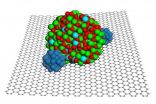(Press-News.org) Philadelphia, PA, February 8, 2011 – For the one in 200 adults in Western societies born with congenital heart disease, adult survivors face a lifelong process of medical interactions. Treatments received during neonatal, childhood, and adolescent years affect future adult events. In the January/February issue of Progress in Cardiovascular Diseases ten articles explore our current understanding of adult congenital heart disease (ACHD) in survivors.
This issue of Progress in Cardiovascular Diseases is dedicated to exploring the path to and current understanding of lifelong congenital cardiac disease as displayed in adult survivors. "In recognition of ACHD care currently holding potential as one of the largest and most complex growth sectors within both pediatric and adult cardiology, and as a model of long-term disease care, a greater understanding of such a continuum of outcomes and care potentials carries import for all readers," observes Michael J. Landzberg, MD, Children's Hospital and Brigham and Women's Hospital, Boston, in his introduction to the issue. "By defining and recognizing the time-dependent influences of past treatments on the aging ACHD population within a world of external forces, we learn both how to suggest refinements in pediatric interventions for children born today with congenital heart disease (CHD) so as to improve their future from that experienced by current adults, as well as where we must innovate to improve even later outcomes for current adults with CHD."
CONTENTS & KEY POINTS:
From Numbers to Guidelines
Ariane J. Marellia and Michelle Gurvitz
Advances in pediatric cardiology and cardiac surgery have resulted in a change in the mortality, prevalence, and age distribution of patients with congenital heart disease (CHD). The authors review the changing epidemiology of CHD and the impact of these trends on health services utilization and delivery in this population.
The Whole Adult Congenital Heart Disease Patient
Adrienne H. Kovacs and Amy Verstappen
Adults with congenital heart disease (CHD) have unique medical and psychosocial needs. They require lifelong cardiac surveillance from medical providers with training and expertise in the care of adults with CHD. Consideration of the "whole" patient demands recognition of the unique medical and psychosocial challenges of adults with CHD.
Adult Congenital Heart Disease: Surgical Advances and Options
Kristine J. Guleserian
Increased success in treating CHD has resulted in a fast-growing and challenging population of adults with CHD given their unique anatomy and physiology coupled with the inevitable effects of aging. A multidisciplinary approach appears to be the best strategy for these highly complex patients.
Advances in Transcatheter Interventions in Adults With Congenital Heart Disease
Jeffery Meadows and Michael J. Landzberg
This article provides a broad review of the important advances in cardiac catheterization that have occurred over the past decade as they pertain to the adult with congenital heart disease, with an emphasis on recent interventional tools and techniques that have revolutionized this exciting field.
Intensive Care of the Adult Patient With Congenital Heart Disease
Catherine K. Allan
The authors review some of the common multiorgan system effects of longstanding congenital heart disease (eg, renal and hepatic dysfunction, coagulation abnormalities, arrhythmias) as well as some of the unique cardiopulmonary physiology of this patient population.
Electrophysiology and Adult Congenital Heart Disease: Advances and Options
Sylvia Abadir and Paul Khairy
This review focuses on recent advances and emerging therapeutic options that are providing safer solutions and increasing the effectiveness with which arrhythmias may be managed in adults with congenital heart disease, spanning pharmacotherapy to innovative interventions.
Advances in Imaging: The Impact on the Care of the Adult With Congenital Heart Disease
Craig Broberga and Alison Knauth Meadows
The evaluation and monitoring of the adult with CHD are demanding and ever evolving. Imaging tools are critical to the medical management and planning for reintervention. Echocardiography, multislice spiral CT, and cardiac MRI all hold an important and unique role among these imaging modalities. Advances over the past decade have been tremendous, and future advances promise to be as important.
Management of Pregnancy in Patients with Congenital Heart Disease
Ian S. Harris
Most women with congenital heart disease are now expected to reach childbearing age and maternal cardiac disease is the major cause of maternal morbidity and mortality. This article describes the circulatory changes that occur during normal pregnancy and delivery, addresses the risks posed during pregnancy by specific congenital lesions, and reviews the current data on pregnancy outcomes in patients with individual congenital defects.
Transplantation in Adults With Congenital Heart Disease
Dana McGlothlin and Teresa De Marco
Adult congenital heart disease represents a growing population of patients being referred for heart, lung, and combined heart-lung transplantation. This group of patients presents multiple unique surgical and medical challenges to transplantation owing to their complex anatomy, multiple prior palliative and corrective procedures, frequently increased pulmonary vascular resistance, and often debilitated condition.
The Future of Adult Congenital Heart Disease Care in the United States
Gary Webb
Gary Webb, MD, Cincinnati Adolescent and Adult Congenital Heart Center, Cincinnati Children's Hospital Heart Institute, a leader in the international ACHD care and research community, offers his sense of mission and vision for where patients and caregivers dedicated to lifelong continuous advancement of care must go and what must be achieved together in the years and decades that are to follow. He calls for a strengthening and consolidation of ACHD research. "The days of single-center observational studies have largely passed. There will be a need for more basic science and translational research and for population-based and outcome research using data resources that are increasingly and abundantly available. The focus will need to be on designing multicenter research studies and earning research grant support. Research will need to get beyond the cardiac and cardiology aspects of ACHD research and become more holistic and inclusive."
These articles appear in Progress in Cardiovascular Diseases, Volume 53, Number 4, (January/February 2011), Adult Congenital Heart Disease, Guest Editors Alison Knauth Meadows, MD, PhD and Michael J. Landzberg, MD, published by Elsevier.
### END
Growing population of adult survivors of congenital heart disease requires specialized care
Latest issue of Progress in Cardiovascular Diseases explores advancements and potential hazards
2011-02-09
ELSE PRESS RELEASES FROM THIS DATE:
Medication education key to successful adherence in patients with diabetes
2011-02-09
Researchers at the Skaggs School of Pharmacy and Pharmaceutical Sciences at the University of California, San Diego say that medication education is a key factor in helping patients with diabetes better stick to their drug treatments plans. The study, currently on line in the February issue of the journal Annals of Pharmacotherapy, points to the need for pharmacists and other health care providers to assess reasons why some patients don't adhere to their medication plans, and to provide counseling opportunities to help them.
"Counseling can be more effective if pharmacists ...
A paperweight for platinum
2011-02-09
RICHLAND, Wash. -- A new combination of nanoparticles and graphene results in a more durable catalytic material for fuel cells, according to work published today online at the Journal of the American Chemical Society. The catalytic material is not only hardier but more chemically active as well. The researchers are confident the results will help improve fuel cell design.
"Fuel cells are an important area of energy technology, but cost and durability are big challenges," said chemist Jun Liu. "The unique structure of this material provides much needed stability, good ...
Understanding patterns of seafloor biomass
2011-02-09
Analysis of a comprehensive database has revealed strong links between biological productivity in the surface oceans and patterns of biomass and abundance at the seafloor, helping to explain large regional differences. The research was conducted by an international, multi-institutional research team including scientists from the National Oceanography Centre (NOC), and incorporated data from the Census of Marine Life (CoML).
The vast majority of the biological production in the world's oceans occurs within sunlit surface waters – the so-called photic zone. Through the ...
Cross-border conservation vital to protect birds in a climate-change world
2011-02-09
Countries need to increase co-operation over conservation to protect birds and other wildlife in an era of climate change, according to a new continental-scale study.
Experts have established a new conservation index to help policy-makers to deal with the effects of climate change on birds in Africa, and it could assist governments across the world to protect wildlife areas and help species as climate change forces them to move to new areas.
It is the first categorisation of protected areas to show how conservationists might deal with climate change and the shuffling ...
Virtual laboratory predicts train vibrations
2011-02-09
The construction of new rail lines, or the relocation of old ones underground, has increased society's interest over recent years in the vibrations produced by trains, especially among people who live or work near the tracks. Now a study headed by the Polytechnic University of Valencia (UPV) has made it possible to estimate the trajectory of vibrations from the point at which they are generated (wheel-rail contact) through to the ground.
"The model acts as a "virtual train laboratory', meaning that, if the parameters of the train or the track ballast are changed, it is ...
Experts call for greater awareness of the links between diabetes and kidney disease
2011-02-09
The first time that many patients realise that diabetes can affect their kidneys is when they are referred to renal services, according to a multi-cultural study in the March issue of the Journal of Renal Care.
UK researchers who spoke to 48 patients with diabetes attending specialist renal services in Leicester, Luton and Ealing, discovered that awareness of the kidney risks posed by the disease was very low.
"The people we spoke to experienced feelings of surprise, fear and regret when they found out their kidney had been affected" says Professor Gurch Randhawa, ...
Extra testosterone reduces your empathy
2011-02-09
A new study from Utrecht and Cambridge Universities has for the first time found that an administration of testosterone under the tongue in volunteers negatively affects a person's ability to 'mind read', an indication of empathy. The findings are published this week in the journal Proceedings of the National Academy of Sciences.
In addition, the effects of testosterone administration are predicted by a fetal marker of prenatal testosterone, the 2D:4D ratio. The study has important implications for the androgen theory of autism (testosterone is an androgen) and confirms ...
Drug-eluting stents are preferred therapy for revascularization of chronic total occlusions
2011-02-09
A systematic review of medical evidence has determined drug-eluting stents (DES) outperform bare metal stents (BMS) for revascularization of chronic total occlusions. Researchers found coated stents reduce restenosis and target revascularization, offering a safe approach with similar adverse events as BMS. Full findings are available in the February issue of Catheterization and Cardiovascular Interventions, a journal published by Wiley-Blackwell on behalf of The Society for Cardiovascular Angiography and Interventions.
Medical evidence maintains that chronic total occlusions ...
Ancient teeth raise new questions about the origins of modern man
2011-02-09
BINGHAMTON, NY – Eight small teeth found in a cave near Rosh Haain, central Israel, are raising big questions about the earliest existence of humans and where we may have originated, says Binghamton University anthropologist Rolf Quam. Part of a team of international researchers led by Dr. Israel Hershovitz of Tel Aviv University, Qaum and his colleagues have been examining the dental discovery and recently published their joint findings in the American Journal of Physical Anthropology.
Excavated at Qesem cave, a pre-historic site that was uncovered in 2000, the size ...
Researchers identify the genotype of disorders causing cardiac sudden death syndrome
2011-02-09
This release is available in Spanish.
Researchers from the Hospital Virgen de las Nieves of the University of Granada have identified the most frequent mutations in the gene KCNH2 in patients with long QT syndrome.
Long Qt syndrome is a disorder of cardiac ionic channels that approximately affects one in every 2,500 people and may cause torsade de pointes episodes, which can trigger sudden death. This condition usually affects children and adolescents, and it is occasionally mistaken for convulsions, leading to a misdiagnosis of epilepsy.
So far, hundreds of mutations ...
LAST 30 PRESS RELEASES:
Fossil amber reveals the secret lives of Cretaceous ants
Predicting extreme rainfall through novel spatial modeling
The Lancet: First-ever in-utero stem cell therapy for fetal spina bifida repair is safe, study finds
Nanoplastics can interact with Salmonella to affect food safety, study shows
Eric Moore, M.D., elected to Mayo Clinic Board of Trustees
NYU named “research powerhouse” in new analysis
New polymer materials may offer breakthrough solution for hard-to-remove PFAS in water
Biochar can either curb or boost greenhouse gas emissions depending on soil conditions, new study finds
Nanobiochar emerges as a next generation solution for cleaner water, healthier soils, and resilient ecosystems
Study finds more parents saying ‘No’ to vitamin K, putting babies’ brains at risk
Scientists develop new gut health measure that tracks disease
Rice gene discovery could cut fertiliser use while protecting yields
Jumping ‘DNA parasites’ linked to early stages of tumour formation
Ultra-sensitive CAR T cells provide potential strategy to treat solid tumors
Early Neanderthal-Human interbreeding was strongly sex biased
North American bird declines are widespread and accelerating in agricultural hotspots
Researchers recommend strategies for improved genetic privacy legislation
How birds achieve sweet success
More sensitive cell therapy may be a HIT against solid cancers
Scientists map how aging reshapes cells across the entire mammalian body
Hotspots of accelerated bird decline linked to agricultural activity
How ancient attraction shaped the human genome
NJIT faculty named Senior Members of the National Academy of Inventors
App aids substance use recovery in vulnerable populations
College students nationwide received lifesaving education on sudden cardiac death
Oak Ridge National Laboratory launches the Next-Generation Data Centers Institute
Improved short-term sea level change predictions with better AI training
UAlbany researchers develop new laser technique to test mRNA-based therapeutics
New water-treatment system removes nitrogen, phosphorus from farm tile drainage
Major Canadian study finds strong link between cannabis, anxiety and depression
[Press-News.org] Growing population of adult survivors of congenital heart disease requires specialized careLatest issue of Progress in Cardiovascular Diseases explores advancements and potential hazards




